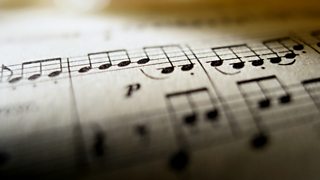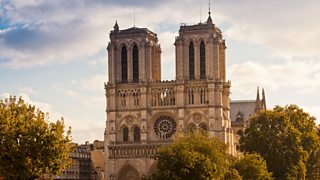The Making of Music Series 1 Episodes Episode guide
- All
- Available now (0)
- Next on (0)
Back up to: The Making of Music
-
![]()
Albertopolis
30/30 The Royal Albert Hall opened in 1871 with a prince championing culture.
-
![]()
Grand Opera
29/30 In the first half of the 19th century, Italy consummated its love affair with opera.
-
![]()
Virtuosi
28/30 In the 1820s and 30s, audiences craved virtuosi performances.
-
![]()
Weber and German Romanticism
27/30 Weber gave German audiences what they wanted - storms and disasters.
-
![]()
Schubert and the Piano
26/30 Schubert used improving piano quality to make it an instrument for the voice.
-
![]()
Beethoven's Eroica
25/30 The composer allegedly removed his original dedication to Napoleon from the manuscript.
-
![]()
Beethoven
24/30 The great German composer worked at a time of seismic change in Europe.
-
![]()
The French Revolution
23/30 La Marseillaise became a national anthem, and music inspired by revolution was everywhere.
-
![]()
Mozart's The Marriage of Figaro
22/30 The play on which Mozart's opera was based was banned in its original form by Louis XVI.
-
![]()
Mozart
21/30 In the middle of the 18th century composers needed patrons, but this was soon to change.
-
![]()
Haydn and the Esterhazys
20/30 Joseph Haydn lived mainly in his patrons' isolated palace and produced music on demand.
-
![]()
Music and Society
19/30 By the late 1700s, music was becoming part of the social fabric.
-
![]()
Rameau and the Philosophes
18/30 Paris during the 1750s was the centre of a clash of cultural ideas.
-
![]()
Handel
17/30 German-born composer George Frideric made English music great.
-
![]()
Bach's St Matthew Passion
16/30 Johann Sebastian's recurring choral theme had a profound effect on the history of music.
-
![]()
Bach in Leipzig
15/30 Johann Sebastian Bach produced some of the most sublime church music ever written.
-
![]()
The Restoration
14/30 The return of Charles II from exile heralded a revival in English music.
-
![]()
The Puritans
13/30 Oliver Cromwell not only appreciated music but also employed former royal composers.
-
![]()
The Violin
12/30 The design of the violin was perfected in Cremona around 1700.
-
![]()
The Sun King
11/30 How English composer John Dunstable's music travelled to the Burgundy court.
-
![]()
The Birth of Opera
10/30 The idea of telling a story in music proved immediately successful across Italy.
-
![]()
Elizabeth I
9/30 In the Elizabethan age, composers Byrd and Tallis revealed the religious divide.
-
![]()
Venice
8/30 Uncle and nephew Andrea and Giovanni Gabrieli wrote music that filled St Mark's Basilica.
-
![]()
The Counter Reformation
7/30 The composer Palestrina became accidentally embroiled in the politics of the high church.
-
![]()
The Reformation
6/30 During the Reformation, Martin Luther harnessed secular songs for religious music.
-
![]()
The Renaissance
5/30 Music and the arts were beginning to celebrate man as well as God.
-
![]()
Burgundy
4/30 The Burgundy Court was influenced by the musical style of England's John Dunstable.
-
![]()
Troubadours
3/30 In courts and great houses, the troubadours wrote secular songs of love and jealousy.
-
![]()
Notre Dame
2/30 As Notre Dame was built, composers Perotin and Leonin wrote music to fill it.
-
![]()
Origins
1/30 James Naughtie looks at classical music origins in churches and monasteries.


